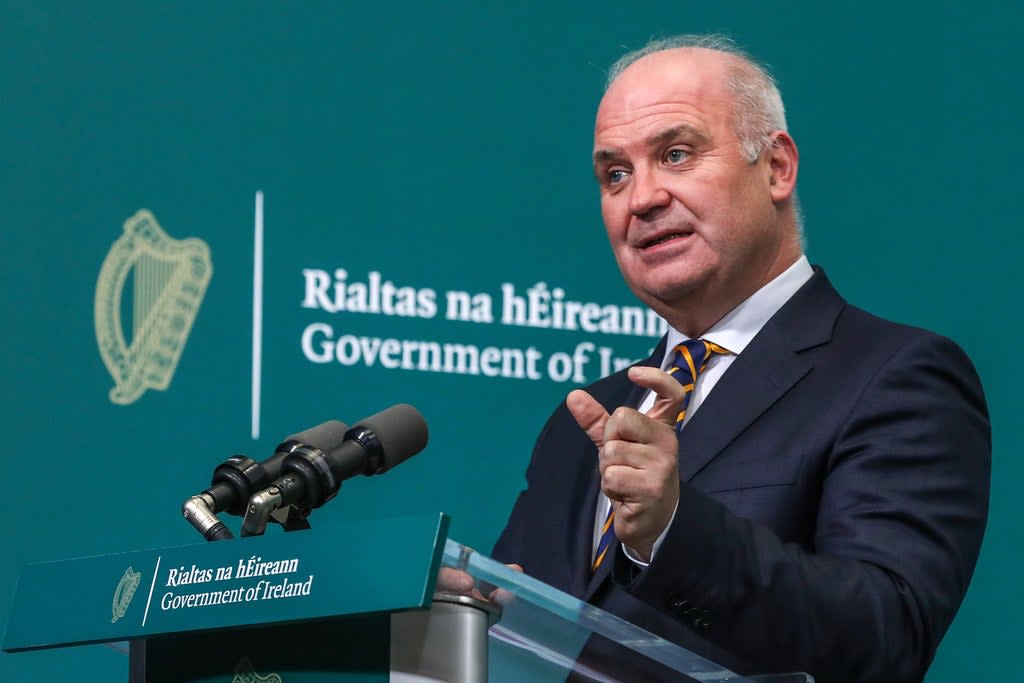Four households meeting up ‘simply not safe’ says medical chief

People meeting up in large numbers from four households is “simply not safe”, the chief medical officer has said.
Dr Tony Holohan delivered the warning as Ireland deals with record numbers of Covid cases caused by the new Omicron variant.
More than 20,000 cases were recorded on Thursday, but Dr Holohan said he believes the number could have been as high as 30,000 if it had not been for restraints on testing.
Now we have seen a significant surge in infections and that has continued unabated
Dr Tony Holohan
Government advice currently states that visits to private homes should be kept to a maximum of three other households, making a total of four households.
But Dr Holohan told RTE’s Good Morning programme that limiting contacts is important in reducing transmission.
He said: “Now we have seen a significant surge in infections and that has continued unabated.
“We had in excess of 20,000 cases announced yesterday. We think because of the constraints in our testing capacity… if we didn’t have those constraints we might have had as many as 30,000 cases picked up yesterday.
“The only responsible message from a public health point of view is what can I do as an individual to protect myself and my family.
“Meeting up in large numbers of four households at this point of time, given the levels of infection that we have, is simply not safe.
“I think it is important for people now to hear that message.”
The basic message is that the measures that people can take to protect themselves are really important now because there is so much of this infection out there
Dr Tony Holohan
Dr Holohan said the current situation would be much worse if it had not been for the vaccination programme.
“This isn’t like last year because of vaccination,” he said. “If we had these case numbers and we didn’t have vaccination, which was the situation we were in this time last year, we would have had very significant numbers of hospitalisations, we would have very significant numbers of potential deaths.
“It is an enormous difference from last year, even though we are dealing with much bigger case numbers.
“The reality is that we see a very significant surge of this new Omicron variant. We are seeing early signs which are giving us concern in terms of hospitalisations.
“The first three days of this week we have seen hospitalisations exceeding 100 per day.”
He added: “The basic message is that the measures that people can take to protect themselves are really important now because there is so much of this infection out there.
“It is too early for us to conclude that we understand what the pattern of hospitalisations is going to be.
“We are in a situation as a country where we will simply not be able to manage within the health service, and we will have challenges across many other essential services if we have many, many more people being infected at the same time.
“That is why our message about people restricting their movements and cutting down their social contacts are so important to help us.”

The Government changed its self-isolation and Covid-19 testing advice for the fourth time this week after 20,554 confirmed cases of coronavirus were notified on Thursday.
Health Minister Stephen Donnelly said testing advice has been changed from seeking a PCR test with symptoms to using antigen testing at home.
Those who test positive with an antigen test should seek a PCR test to confirm the result.
Self-isolating advice for those who test positive for Covid-19 has also changed.
Those aged 12 and over, who have had their booster vaccine jabs for at least seven days, should self-isolate for seven days instead of the previous advice of 10 days.

 Yahoo News
Yahoo News 
